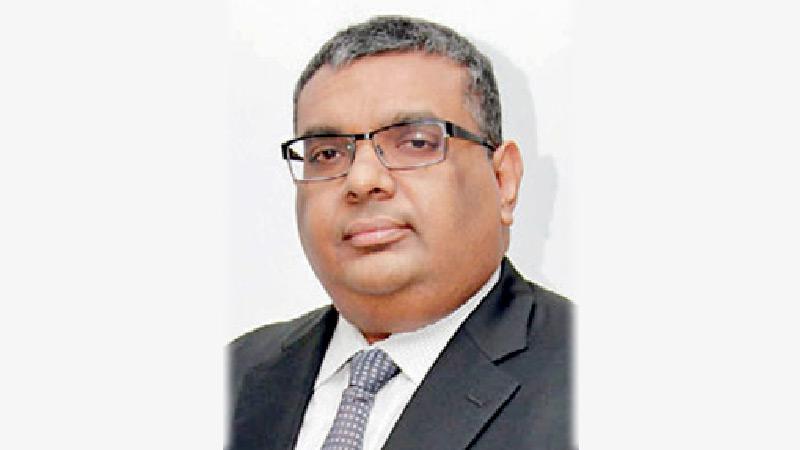
The Export Development Board (EDB), the apex body for export development, will present proposals to the Government to help exporters manage their cash flow issue and be competitive in the post Covid-19 global market apart from continuing the broader National Export Strategy (NES), EDB Chairman Prabhash Subasinghe said on Friday.
He said a major concern of exporters during the pandemic was on managing their cash flow. Requests have been made by exporters to provide significant assistance to overcome such barriers.
“We are looking into avenues which would help exporters to overcome such concerns,” Subasinghe said, adding that another concern of the exporters, especially perishable goods exporters, is the cash flow issues due to enhanced cost of airfreight to dispatch cargo to key export destinations. “Our plan is to develop an efficient mechanism with the support of stakeholders.”
The EDB chief reiterated the need to support the SMEs to be globally competitive in the post-Covid era to plug into global value chains while providing support in managing risks.
“The NES has been implemented for nearly two years and in this time of global crisis, it is imperative that the NES continues to be used as a springboard by policymakers and industry partners to guide export growth and recovery in a post-Covid-19 context,” Subasinghe said.
With regard to the relevance of NES in the post-covid era he said, NES is a comprehensive document formulated through extensive public, private stakeholder consultations with a focus on ICT and BPM services, wellness tourism, boating industry, electrical and electronic components, processed food and beverages, spices and concentrates, trade information and promotion, logistics, and national quality infrastructure.
According to the EDB chief, the NES implementation process is simultaneously responding to the Covid-19 pandemic situation in the country while building future resilience.
The NES interventions were designed through public-private dialogues to address supply and demand-side bottlenecks. For instance, National Quality Infrastructure (NQI) is one such essential supply-side intervention against the Covid-19 setting.
The NES endorses strengthening the broader NQI ecosystems to formalise domestic and internationally accredited standards for smallholders to export value-added products globally. Improved quality of inputs and products will become ever more important in a post-Covid world where consumers will prefer to consume safe products.
He said the NES has shown healthy growth for 2018–2019. In 2018, the NES commenced its implementation and in 2018 the NES supported the implementation of 105 Plans of Action (PoAs).
Last year, this number increased to 148 PoAs. Thus, achieving an overall increase in implementation support by 22.8%. According to the EDB, despite a drop in exports in June this year by 26 percent compared to a year earlier to US $ 906.02 million, it recovered sharply in May after the Covid-19 pandemic, particularly with estimated Personal Protective Equipment (PPEs) related exports of US $ 106.46 million in June.
“The EDB is working with a network of government departments to help exporters to continue exporting during these exacting times. We aim to support businesses and brands overcome Covid-19 related challenges locally and globally by providing information on best practices, state concessions, logistics and fast-evolving global markets.
The EDB is supporting the export sector to get back on its feet by maintaining close coordination with Sri Lanka Missions overseas through frequent meetings with the Foreign Ministry to share quick intelligence reports with exporters on new opportunities, market alerts and product updates of Sri Lankan products.
The EDB is also working closely with the regional export oriented enterprises through Development Officers of the provinces and making arrangements to work closely with farmers to provide raw material for value added agri products which have an increasing demand internationally.
Subasinghe said the EDB hopes to address long-standing concerns that Sri Lanka has failed to diversify its export basket beyond apparel assembly, which makes up nearly half of all export revenue, and traditional plantation crops such as tea, rubber, and coconut.
The EDB and the BOI are working in collaboration to attract and increase investments with a focus on emerging potential areas in agriculture, industrial and service segments targeting key products to enhance the export basket, such as automotive parts, apparel (technical apparel and PPEs), electrical and electronic components, ICT, mineral based products and the food processing sectors.
The EDB and BOI are also exploring the possibility of setting up a specialised pharmaceutical zone and inviting large players to invest.
“Our focus is also to go for regional markets close to Sri Lanka such as the Middle East and Asia while maintaining our position in the markets. Measures are being taken to ensure favourable access to Sri Lankan products through FTAs and economic partnership agreements with countries in SAARC, East Asia and the Middle East.
